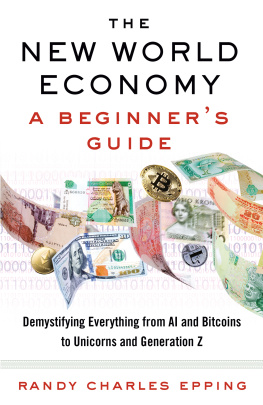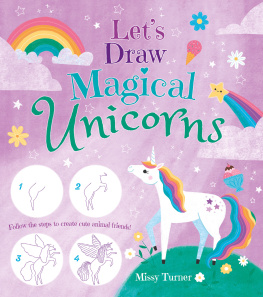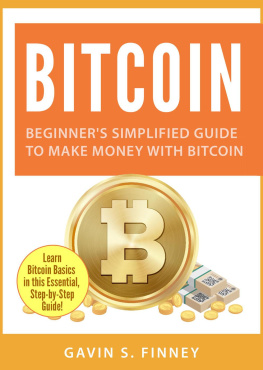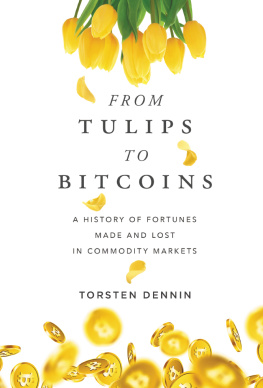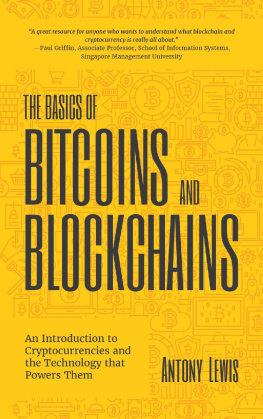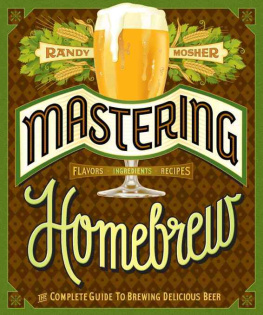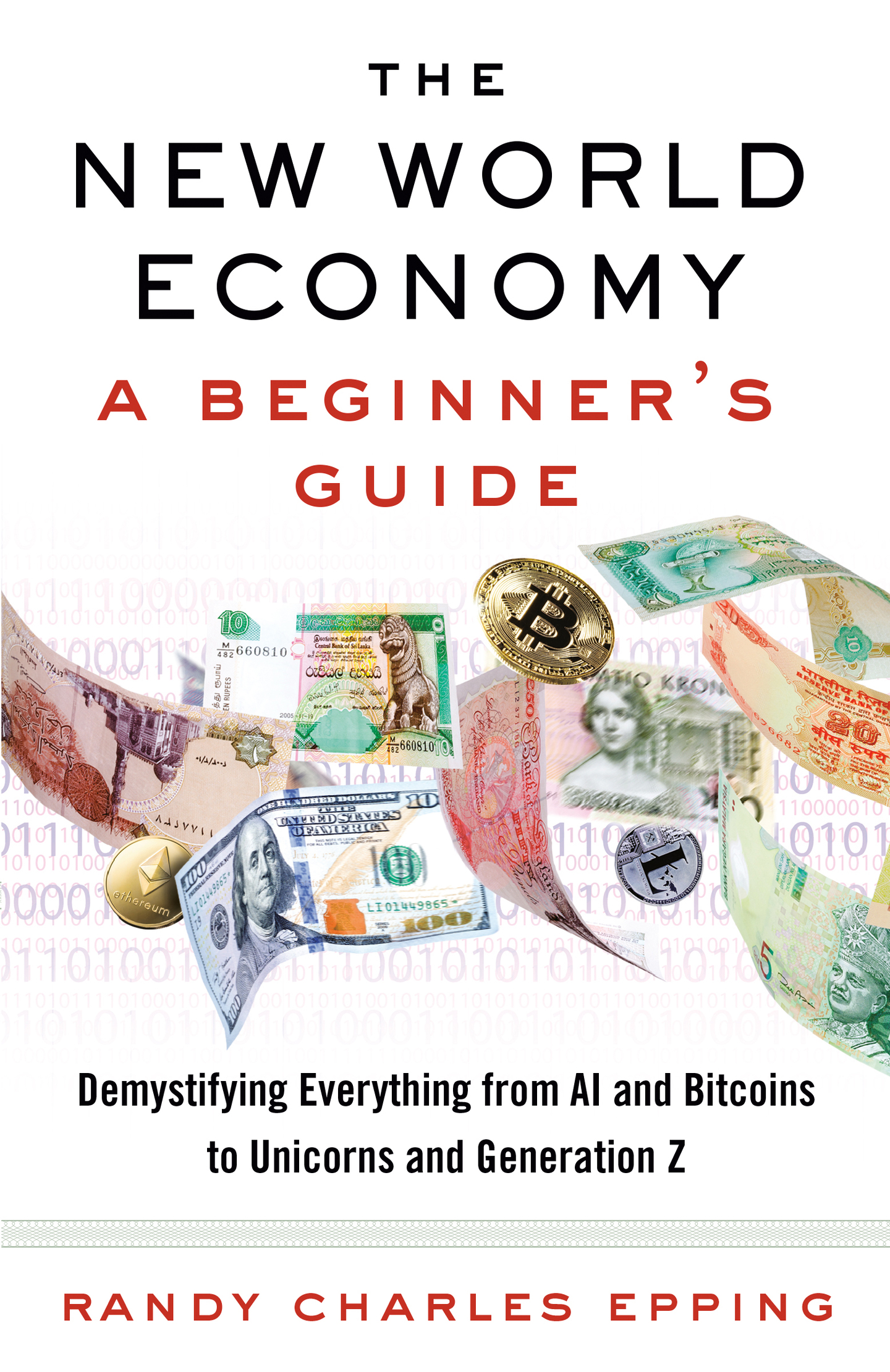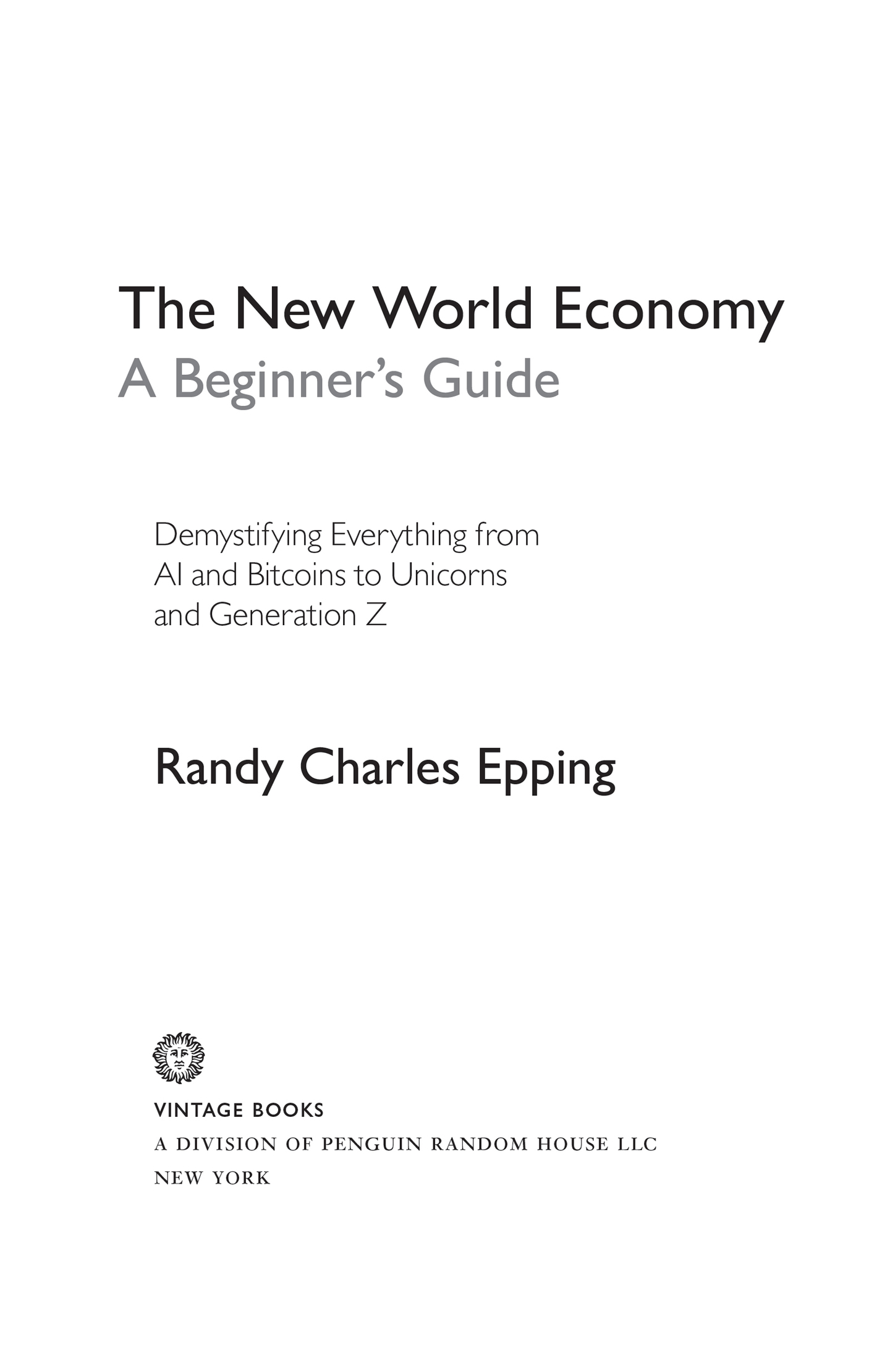Randy Charles Epping, based in Zurich, Switzerland, and So Paulo, Brazil, has worked in international finance for more than twenty-five years, holding management positions in European and American investment banks in London, Geneva, and Zurich. He has a masters degree in International Relations from Yale University, in addition to degrees from the University of Notre Dame and the University of ParisLa Sorbonne. He is currently the manager of IFS Project Management AG, a Switzerland-based international consulting company. He is also the president of the Central Europe Foundation, which provides assistance to students and economic organizations in Central and Eastern Europe. In addition to The New World Economy: A Beginners Guide, he has written several other books on the world economy that have been translated into more than twenty languages around the world. He has also written a novel, Trust, a financial thriller based in Zurich and Budapest. Mr. Epping holds dual U.S. and Swiss citizenship and is fluent in six languages: English, French, German, Italian, Portuguese, and Spanish.
Also by Randy Charles Epping
NONFICTION
A Beginners Guide to the World Economy
The 21st-Century Economy: A Beginners Guide
FICTION
Trust
A VINTAGE BOOKS ORIGINAL, JANUARY 2020
Copyright 2020 by Randy Charles Epping
All rights reserved. Published in the United States by Vintage Books, a division of Penguin Random House LLC, New York, and distributed in Canada by Penguin Random House Canada Limited, Toronto.
Vintage and colophon are registered trademarks of Penguin Random House LLC.
The Cataloging-in-Publication Data is on file at the Library of Congress.
Vintage Books Trade Paperback ISBN9780525563204
Ebook ISBN9780525563211
Cover design: Joe Montgomery
Cover images: PaulPaladin/123RF; dibrova/Deposit Photos; urfingus/Deposit Photos: evryka23/Deposit Photos; rclassenlayouts/Deposit Photos; melis82/Deposit Photos; a_taiga/Deposit Photos
www.vintagebooks.com
v5.4
a
To Dr. Elemr Hantos, Hungarian political and economic visionary who, already in the 1920s and 1930s, saw the importance of economic cooperation as a bulwark against conflict and war.
To my editor at Vintage Books, Andrew Weber, for his tireless work in making this book relevant and interesting to his generation. And mine. And all the generations in between.
Also, many thanks to all those who helped me with ideas and suggestions along the way. Especially my sister, Shawn Engelberg, who believes, like me, that the world economy can be demystified in a way that allows everyone to take part in the great economic debate.
If economists want to be understood, let them use plain words[and] address those words less to politicians and more to everybody else. Politicians care about what voters think, especially voters in blocks, and not a shred about what economists think. Talking to politicians about economics is therefore a waste of time. The only way to make governments behave as if they were economically literate is to confront them with electorates that are.
The Economist
Contents
1. Butterflies over Beijing:
What Is the New Fusion Economy?
2. Bitcoins and Blockchains:
Are Cryptocurrencies Real Money?
7. Brexit and Border Walls:
Does Economic Isolation Make Economic Sense?
17. Barbarians at the Gate?
Private Equity Investors, Venture Capitalists, and High-Frequency Traders
24. BRICS and Beyond:
How Emerging Markets Are Becoming the New Powerhouses of the World Economy
27. Sharing the Wealth:
How Do Charities, Private Enterprise, and NGOs Promote Economic Development?
28. Corruption and Tax Evasion:
How Does Money Laundering Work?
29. The Dark Web and Other Black Markets:
How Big Is the Illegal Economy?
Preface
What is the world coming to? Populist governments around the world are ripping up trade agreements, building walls, and throwing economic cooperation out the windowall in the name of protecting jobs and ensuring long-term economic growth. It all sounds good; its supposed to. Who needs foreigners? Who needs the rest of the world to be rich and secure?
The only problem is that much of whats being doneostensibly for economic reasonsis actually being done to further the political agendas of exploitive politicians and ends up hurting the very people they say they want to help. The working class in many of the worlds developed countries has seen real wages stagnate over the last thirty years while those in the top 1 percent have seen their income levels and wealth increase astronomically. Meanwhile, populist politicians are enacting large tax cuts, theoretically to stimulate economic growth and job creation, often creating gargantuan fiscal deficits. Not surprisingly, many corporations are choosing to use their windfall profits to buy back shares instead of hiring more workersmainly benefiting wealthy shareholders. In the end, trade wars usually help a small minority of companies who long for protected marketsand they usually hurt everyone else, including the very workers those trade barriers are supposed to protect.
But what can we do? Many of us are bewildered by a fast-changing global economy that seems too big and too complicated for us to understand. So we let the politicians make our decisions for us. Unfortunately, the politicians are not always going to do whats best for us. Theyre going to do whats best for them and their reelection chances.
Cryptocurrenciesimmigrationsharp powertrade warsand robots taking our jobs away. A virtual explosion of complexity has occurred within the economy over the last few years, and we are being asked to understand it all. Words and phrases like pollution rights, algorithm-based artificial intelligence, and hot money appear regularly in the news, and many of us dont know what they actually mean. Furthermore, the incessant stream of fearmongering sound bites on the news and on the Internet only leaves us confused and anxious.
But it is, in fact, possible for us to demystify virtually all of it. Essentially, the world economy is no more complicated than the domestic economy that we navigate daily. We dont think twice about using the Internet or crossing the street to get a better deal when buying an appliance. Its not so different from crossing borders to invest our money or to buy and sell goods and services. Sound economic judgment is one of the most-needed skills in the world today. And since most of what were getting from politicians is manipulative rhetoric that plays to our fears and heightens division, were going to have to look out for our own economic interests. The idea of this book is not only to give you a basic understanding of what is happening in the world economy but also to provide you with the tools to be able to make sense of future economic eventsgood or bad.
Whoever we arecollege students or businesspeople, environmentalists or farmers, homemakers or union activistsif were going to be responsible citizens and consumers, were going to have to learn the basics of the economy we live in. For many of us, however, the study of economics has been an exercise in futility, full of obscure graphs and equations that feel hopelessly out of touch with our daily lives.

